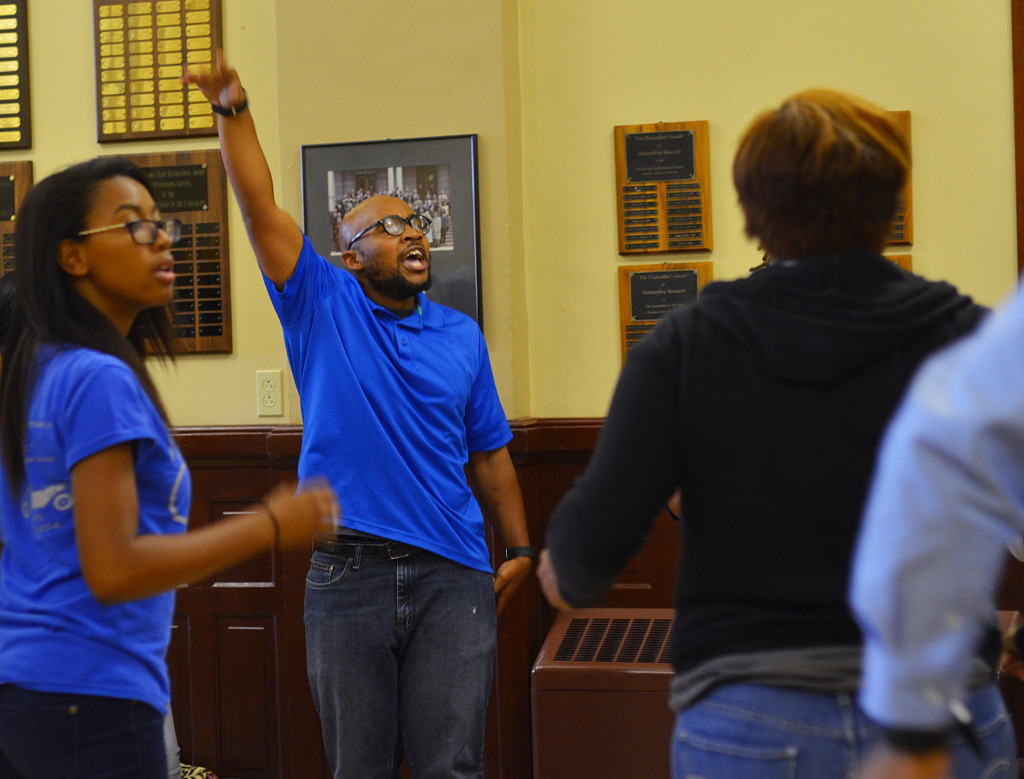
I’ve been struggling to reconcile competing thoughts on what’s happening at Mizzou, specifically between students and reporters.
This Vox post, quoting a Washington Post article about the parallel conversation at Yale, talks about an important part of these stories that’s often ignored:
One of the purposes of college is to articulate stupid arguments in stupid ways and then learn, through interactions with fellow students and professors, exactly how stupid they are. Anyone who thinks that the current generation of college students is uniquely stupid is either an amnesiac or willfully ignorant… As a professor with 20 years of experience, I can assure you that college students have been saying stupid things since the invention of college students.
The difference today is that because of social media, it is easy for college students to have their opinions go viral when that was not the original intent… If you are older than 22 and reading this, imagine for a second how you would feel if professional pundits pored over your undergraduate musings in real time.
So on one hand, I get it: Nobody wants an unintended gesture made or statement said in the heat of a chaotic situation to represent you on the Internet for the next 10-15 years. On the other hand, a cause that’s just and fair should withstand the scrutiny of an open press. The most newsworthy part of the Mizzou story was the black football players banding together and refusing to play – a story that touches on lots of hot-button issues: race, the ongoing conversation about unpaid student athletes, worker protections, social justice, etc. These issues should get a proper vetting in the press.
Still, how do Mizzou students exercise their collective right to protest and make change, do it in a transparent way and protect their rights to privacy? Honestly, I’m not sure. Yes, this is all being done in public space and on some level this isn’t private. But the coverage often outlasts the moment and at some point it affects the comfort level sources have with the press.
Is it possible to protect the right to make a mistake in protest efforts but also keep traditional media close? Does that get you anything as a protest group in 2015? It’s as much a risk as a benefit. If you have access to social media, which – thanks to Black Twitter and other groups – can amplify a story to its intended audience and understand it in a way traditional press cannot, why risk talking to CNN? Yes, there’s a First Amendment right to a free press, but these student groups aren’t a governmental body. Late today, the groups seemed to realize they’d perhaps started to do themselves more harm than good.
Prior to the last year, the national media has often undercovered stories on race. Even with an increased effort to cover these kinds of stories, they’re usually filmed through a Manchiean lens – this view vs. that view. A story like Mizzou is far more complicated with some folks seeming to act in a contradictory way. After a year of watching the way on-the-ground stories have been twisted by a virality-driven national media, I’m not surprised there’s a distrust of people who parachute into an event that has a complicated backstory. Somewhere in here, the affects of all the cuts that have happened to newspapers’ local and regional bureaus have prevented an ongoing dialogue between the press and their potential sources and the press now finds itself literally blocked out.
I don’t have a clear set of answers or a way forward here, but it’s clear this won’t be the last time reporters will be challenged in how to cover on-the-ground stories with marginalized groups. Just like their counterparts on the business side, they’ll need to stop insisting on a return to a previous model and adapt, perhaps – as local stories like this blow up into national stories quickly – by rebuilding the bureau model around beats, rather than geographic areas.
EDITED TO ADD: Having said all that, I pretty much sign on to the views expressed in this Atlantic article, too.